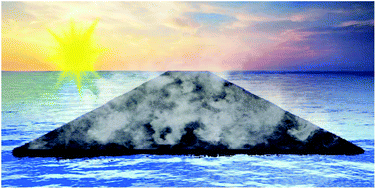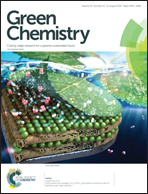Floating, highly efficient, and scalable graphene membranes for seawater desalination using solar energy†
Abstract
Seawater dehydrates humans when it is drunk untreated, due to its high concentrations of salts. Currently, it can only be purified into large amounts of freshwater using reverse osmosis, with large electricity consumption, carbon emissions and environmental damage. Although seawater directly evaporates under natural sunlight, the efficiencies and scales are too small for practical collection. Herein, we report a floating graphene membrane for evaporating seawater into freshwater exclusively using solar energy, with high efficiency and large scalability. Polyimide films can be fully converted to graphene membranes using one-step laser scribing, without involving chemicals or generating wastes. These green desalination graphene membranes evaporate water at a rate up to 1.37 kg m−2 h−1 under one sun illumination, which possesses even higher purity than domestic water. These graphene membranes can float firmly at the air–water interface with a self-righting ability, such that the process is feasible for practical water desalination on ocean surfaces.



 Please wait while we load your content...
Please wait while we load your content...